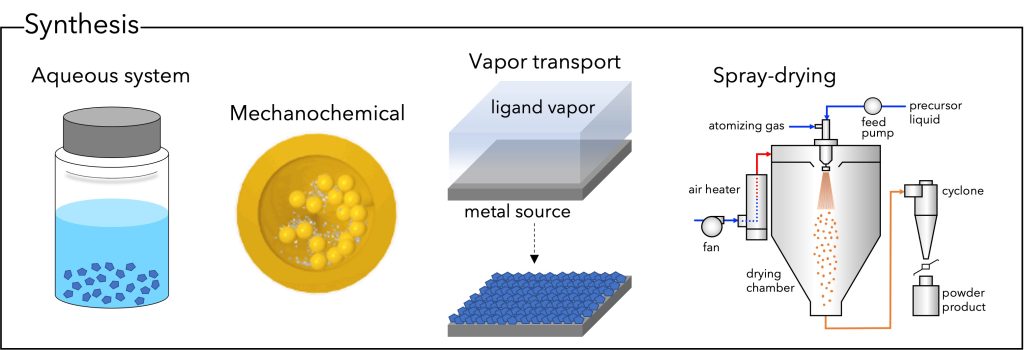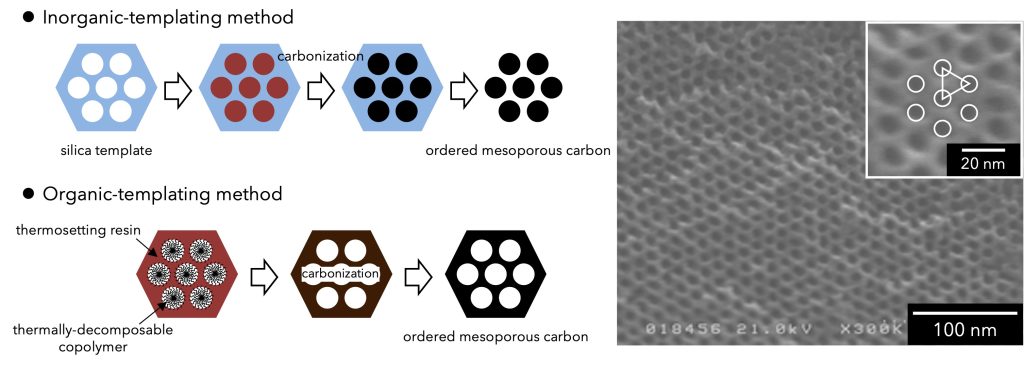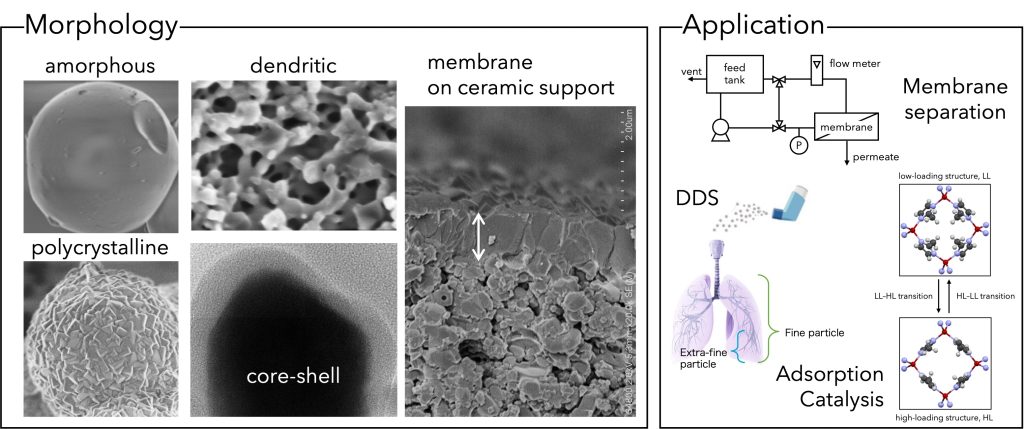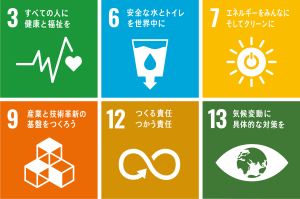1.Development of scalable synthesis process for nanoporous materials
Ordered nanoporous materials including zeolites, metal organic frameworks (MOF) and mesoporous solids offer many interesting opportunities in separation technology, with unprecedented capacities and chemical and structural tunability. The diversity of pore structure and functionalized frameworks have shown promising developments in the fields of gas separations, sensing, and catalysis. Simple techniques to synthesize nanostructured porous materials are required for the development of practical applications. It is important to systematize economically, environmental-friendly, rational and efficient manufacturing technology to synthesize the nanostructured porous materials. Our group has been developing new and scalable processes for synthesis of ordered nanoporous materials based on the concept of play of LEGO®️ block assembly.

2.Control of nanostructure and morphology
Besides the variation of nanostructure, the morphological and size control of porous materials has been a key breakthrough toward the development of practical applications. Our group has been investigating the relationship between material morphology and performance of separation, catalytic reaction and energy storage. We have reported simple techniques to control morphology and configuration (film, fiber and sphere) of mesoporous carbons by means of organic-organic self-assembly using thermosetting resin and thermally-decomposable copolymer. In our group, it is found that the crystal downsizing of MOF regulates the structural flexibility in equilibrium gas adsorption/desorption. Our results suggest that structural transitions and transport properties are dominated by crystal surface effects.

3.Applications of ordered nanoporous materials
Many sustainable applications require an efficient and energy-saving separation technique of molecular mixtures. Our group has been developing supported porous layers consisting of MOF and carbons for applications of gas separation, pervaporation, nanofiltration and membrane reaction. Membrane separation is one of the most critical and challenging steps for industrial processes, and zeolite and MOF membranes are potential candidates for this application. Our group focuses on materials chemistry, membrane synthesis, processing, characterization, and improving performance.

4.Non-linear and non-equilibrium phenomena
Non-linear phenomena are of interest to many scientists including chemical engineers because most systems are inherently non-equilibrium nature. Many industrial processes operate in a steady state, so they are designed and operated under the constraint of equilibrium assumption. However, in order to introduce more advanced functions to industrial processes, it is necessary to understand non-linear and non-equilibrium phenomena. Our group focuses on spatiotemporal structure and spontaneous motion in non-equilibrium open systems.


